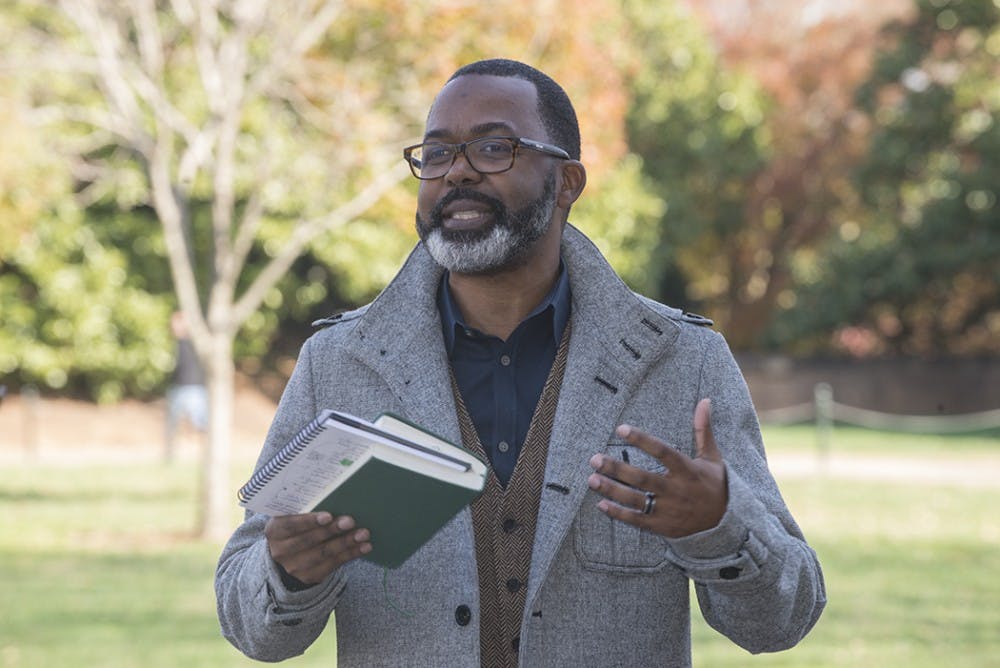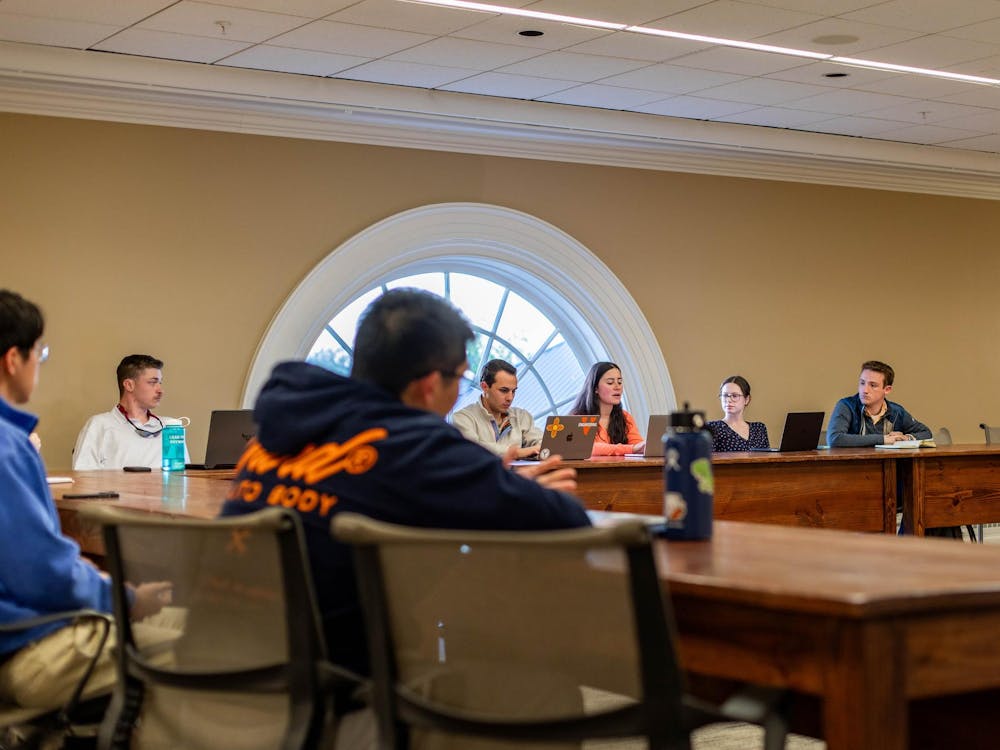On Tuesday, the Eliminate the Hate campaign hosted a teach-in to educate students and University community members on the history of hate speech, racism and bigotry in the United States.
Rawda Fawaz, second-year College student and student organizer of the event, said she wanted to bring an academic perspective to the effects of hate speech.
“While there’s a lot of power to personal narrative, there also is importance in understanding the history of hate and racism and bigotry in America and what it looks like and what it can lead us to,” Fawaz said.
Located on the front steps of Old Cabell Hall, the teach-in was purposefully designed so students would pass it on their walk between classes and could come, sit on the steps and listen to professors speak for as long or little as they wanted.
The placement of the teach-in, as well as a majority of the Eliminate the Hate events this week, has a broader significance connected to the historical design of the University.
“Old Cabell was built to block off U.Va students’ view of a majority African American community in the mountains and we have been occupying it physically for a long time now to capture that narrative with our own, and that is one of fighting racism and fighting bigotry at U.Va.,” Fawaz said.
Fawaz said she became involved with the campaign in its beginning days after she was victim to a hate crime in late September.
“That had a really major effect on my life,” she said. “When we were planning out what we wanted to have, we talked about having a teach-in and I knew I wanted to be the head of that project, because the one thing I care about at the University is making sure that faculty support their students.”
Fawaz said the committee for the teach-in wanted to feature professors who were socially conscious, socially liberal and had an interest in the student’s campaign. Although the students asked the professors to speak, their involvement was still voluntary and stemmed from their interest in the campaign.
Sociology Prof. Rose Buckelew opened up the teach-in by discussing the presence of systemic racism in the University community and the country at large.
“There has been really great work done by professors that helps us recognize that there are signs and symbols in the curriculum, the names of buildings, and the architecture that help us understand that this isn’t a neutral space,” Buckelew said. “This is, in many ways, a white space. A space where white supremacy is allowed to move about.”
Buckelew said she wanted bring new ideas to the way racism is discussed.
“I want to move away from this sort of idea that racism is embodied in certain types of bodies but rather it is a system, a system that many of us partake in and benefit from even if it’s sort of passive,” she said.
In the wake of the responses to University President Teresa Sullivan’s inclusion of a Thomas Jefferson quote in an email sent to students after the election, Maurice Wallace, associate professor of African American and African Studies and English, included his own opinions on the subject in his talk.
“It is not always advisable to invoke the founder and I think that in the week like one we had it is probably ill advised,” Wallace said. “It is true, in fact, that Jefferson is responsible for having rhetorically packaged that ‘all men are created equal,’ but though Jefferson came up with the phrase, it wasn’t his idea.”
Wallace went on to continue talk about hate and racism in the context of the past week’s events and described the election as apocalyptic.
“These series of events, these acts of violence, these episodes of racial hate and ethnic hate and religious hate and gendered and sexualized hate — all of these things I think suggest to us that what we are hearing is not new but has been lingering for awhile and now only has gotten permission, a kind of social or symbolic endorsement to be heard,” Wallace said.
Wallace also spoke directly to the issue of hate speech on Grounds and in the nation today.
“Words have creative power and I think that hate speech has the power to create the conditions of possibility that allow for racial hate, gendered hate and the like discrimination to thrive, to flourish,” Wallace said. “Hate speech is not near words but create the conditions that invite, that call on violent attitudes and violent speech.”
On Friday, the Eliminate the Hate campaign will holding marches past locations where there have been instances of bias or bigotry before occupying the Rotunda to show that minorities physically occupy space, are here at the University and should be recognized.
”I’d encourage any students to come out and support that physically because it’s so important to have numbers,” Fawaz said. “There is strength in numbers and it there is a very powerful message sent to minority students when they see that support, that they are cared for and they do belong.”






